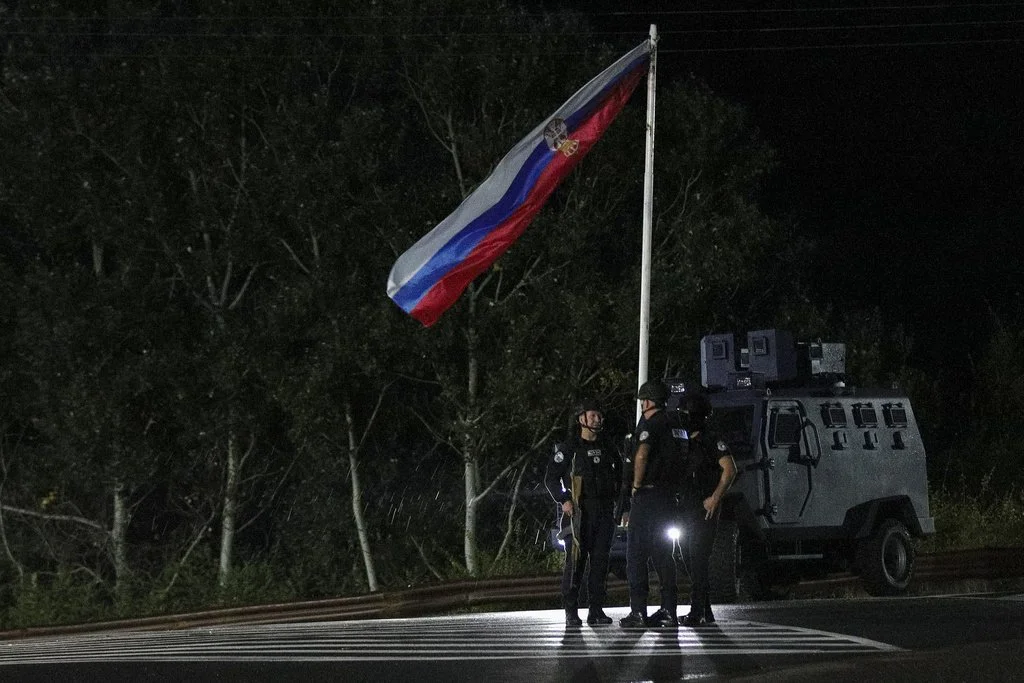US’s Support for Democracy and Its Impact on Africa, the Balkans, and the Caribbean
The UN General Assembly votes on the US economic embargo on Cuba, on Oct. 30, 2024. (Photo: UN Photo/Evan Schneider)
On Wednesday, Oct. 30, 2024, the UN General Assembly called on the US to end its economic embargo on Cuba for the 32nd year. The 193-member General Assembly voted 187-2 in favor of ending the embargo, with only Israel and the US opposing the resolution and one nation abstaining. Former President John F. Kennedy initially implemented the embargo in February 1962 in response to actions by the Cuban government. In 2016, diplomatic relations were restored between the two countries by former US President Barack Obama and then-Cuban President Raul Castro, and the US abstained from the embargo vote. However, in 2017, former President Donald Trump resumed voting against the resolution, a pattern that has continued since.
US Ambassador Paul Folmsbee explained the US vote against the resolution, stating that the US “stands with the Cuban people” and views sanctions as a tool to “advance democracy and promote respect for human rights and fundamental freedoms in Cuba.” Folmsbee added that the embargo is intended to encourage the Cuban government to adhere to their “human rights obligations.”
Following the UN vote, Argentine President Javier Milei dismissed Argentina’s Foreign Minister Diana Mondino after Argentina voted to lift the US embargo on Cuba. This marked the first time under Milei’s administration that Argentina did not align with the Israeli and US governments. Before Milei’s presidency, Argentina’s left-wing government maintained close relations with Cuba, but Milei has reversed this approach. Milei’s office outlined the president’s new diplomatic stance in a statement, emphasizing that Argentina is undergoing significant change and that its foreign policy must uphold the “values of freedom, sovereignty, and individual rights that characterize Western democracies.” The statement added that Argentina opposes the “Cuban dictatorship” and will promote a foreign policy condemning regimes that “perpetrate human rights violations.”
Kosovo police officers guard road near the village of Banjska, northern Kosovo, Sept. 24, 2023. (AP Photo/Bojan Slavkovic, File)
Also on Oct. 30, 2024, the UN Security Council met to discuss various issues, including the situation in Kosovo. Kosovo declared independence in 2008, and since then, the US and over 100 UN member states have recognized it as a sovereign state, though Kosovo is still not a member of the UN General Assembly. US Ambassador Robert Wood emphasized that the US’s ultimate goal “remains eventual mutual recognition” of Kosovo. Wood condemned Serbia’s lack of accountability for a paramilitary attack on a Kosovo police station over a year ago, highlighting the absence of meaningful progress. He added that the US aligns with the Western Balkans’ goals of advancing economic integration, regional stability, democratic governance, diverse societies, and the rule of law.
At a UN Security Council meeting on Oct. 31, 2024, US Ambassador Robert Wood addressed the situation in Libya, where two rival administrations have competed for control, fueling violence, drug and human trafficking, and terrorism. Wood condemned Russia as the “sole reason” for the lack of a “straightforward, one-year mandate” for the UN Support Mission in Libya (UNSMIL), which aims to promote stability and peace. Wood added that supporting UNSMIL would help provide the Libyan people with a “better future that they deserve.”
Between Oct. 30 and Oct. 31, the US reaffirmed its commitment to promoting democracy and human rights worldwide. For Cuba, this includes maintaining the embargo until the Cuban government meets human rights obligations. In Kosovo, the US supports stability in the Balkans and condemns violence. In Libya, the US stands with the Libyan people, condemning violence, terrorism, and drug and human trafficking. This push for democracy and human rights coincides with a pivotal moment in US domestic politics, as the outcome of the 2024 presidential election could lead to significant shifts in US foreign policy.


